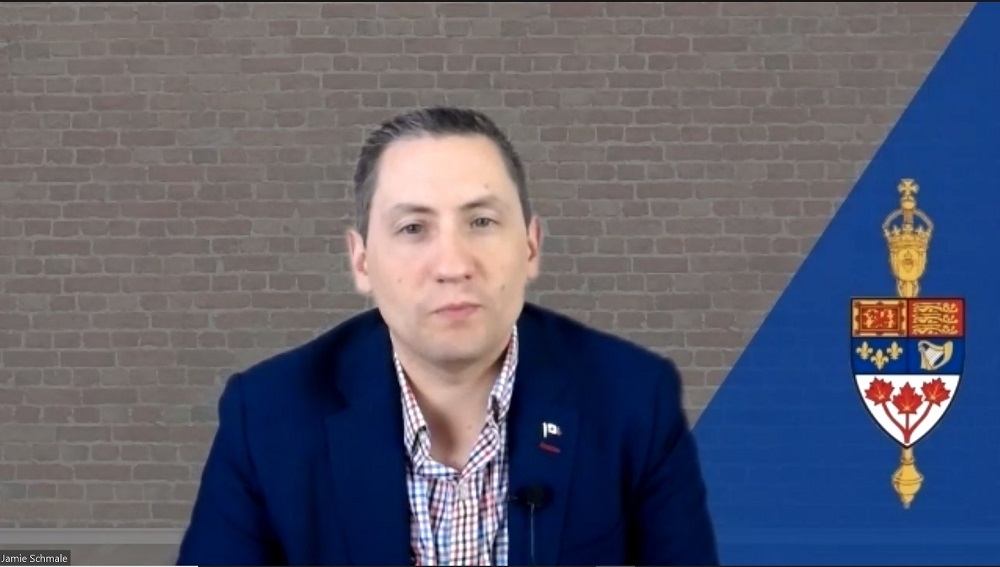Haliburton-Kawartha Lakes-Brock MP Jamie Schmale hosted a virtual town hall to highlight his party’s plan to speed up the process of improving connectivity.
The Conservative Party has released a call to action on rural internet access called Connect Canada, a series of recommendations for the federal government to improve connectivity across the country. Schmale invited his constituency May 20 to discuss the plan and field questions about rural internet access.
Calgary-Nose Hill MP and Shadow Minister for Industry and Economic Development, Michelle Rempel Garner as well as Cypress Hills-Grasslands MP Jeremy Patzer attended.
Rempel Garner highlighted the government’s commitment to connect 95 per cent of Canadians to high-speed internet by 2026, and all Canadians by 2030. Instead, she said her party hopes to achieve that by the end of next year.
“We believe there are structural reforms that are needed,” Rempel Garner said.
The call to action includes 14 recommendations, including developing a Canadian Broadband Strategy, alleviating short-term bandwidth shortages, improving telecom reporting and transparency, giving municipalities the funding to build and own the infrastructure, and more. The party has started a working group to get feedback on their ideas.
“While investment is important and is going to be a key component of any strategy, it’s not the be-all and end-all,” Rempel Garner said. “We need a framework in which investment actually delivers results.”
Other recommendations include creating local connectivity infrastructure funds people could pay into for their region, limiting regional price differences for national providers to 10 per cent and simplifying the language in Internet Service Providers (ISP) contracts to be more easily understood.
Eastern Ontario Regional Network (EORN) communications director Lisa Severson was also in attendance to provide an update to the organization’s governmentbacked project, a $213-million initiative to address dead zones and improve mobile broadband through eastern Ontario.
The organization released a request for proposals to build new infrastructure April 20. Severson said they hope to begin construction in Spring 2021.
“In many areas of Eastern Ontario, there is zero cell coverage at all, which in today’s times is absolutely unacceptable,” Severson said. When asked about how to get urban people to care more about this issue given their connectivity tends to be stronger, Rempel Garner said COVID-19 has helped bridge that divide.
“It (internet access) has become a bit of a barrier to equality of opportunity not only in rural Canada, but urban Canada as well,” Rempel Garner said. “This has been a wake-up call for urban Canada.”
Rempel Garner said an expedited plan is necessary.
“It needs to be done in a very short period of time because if we don’t, we’re going to see even more of a divide between rural and urban Canada, and frankly, poor and rich Canada.”





